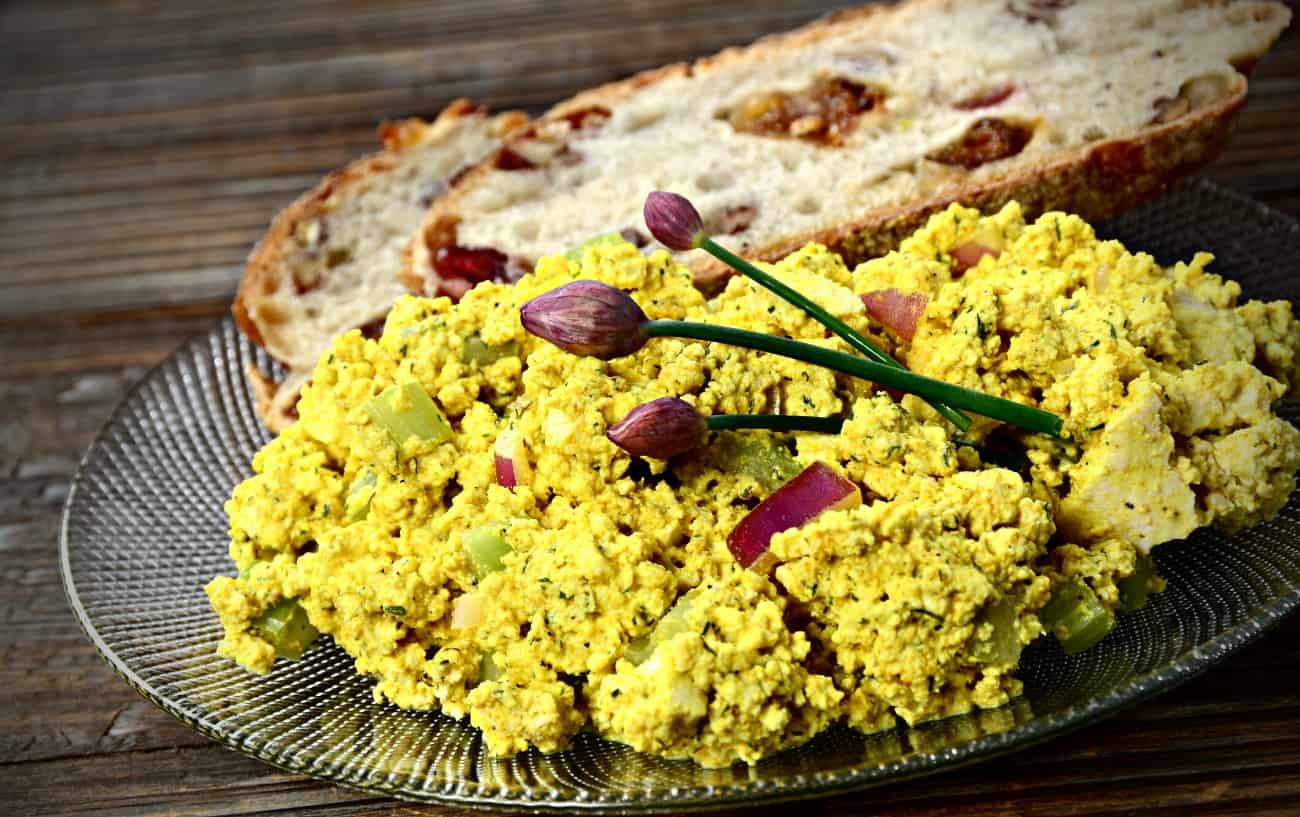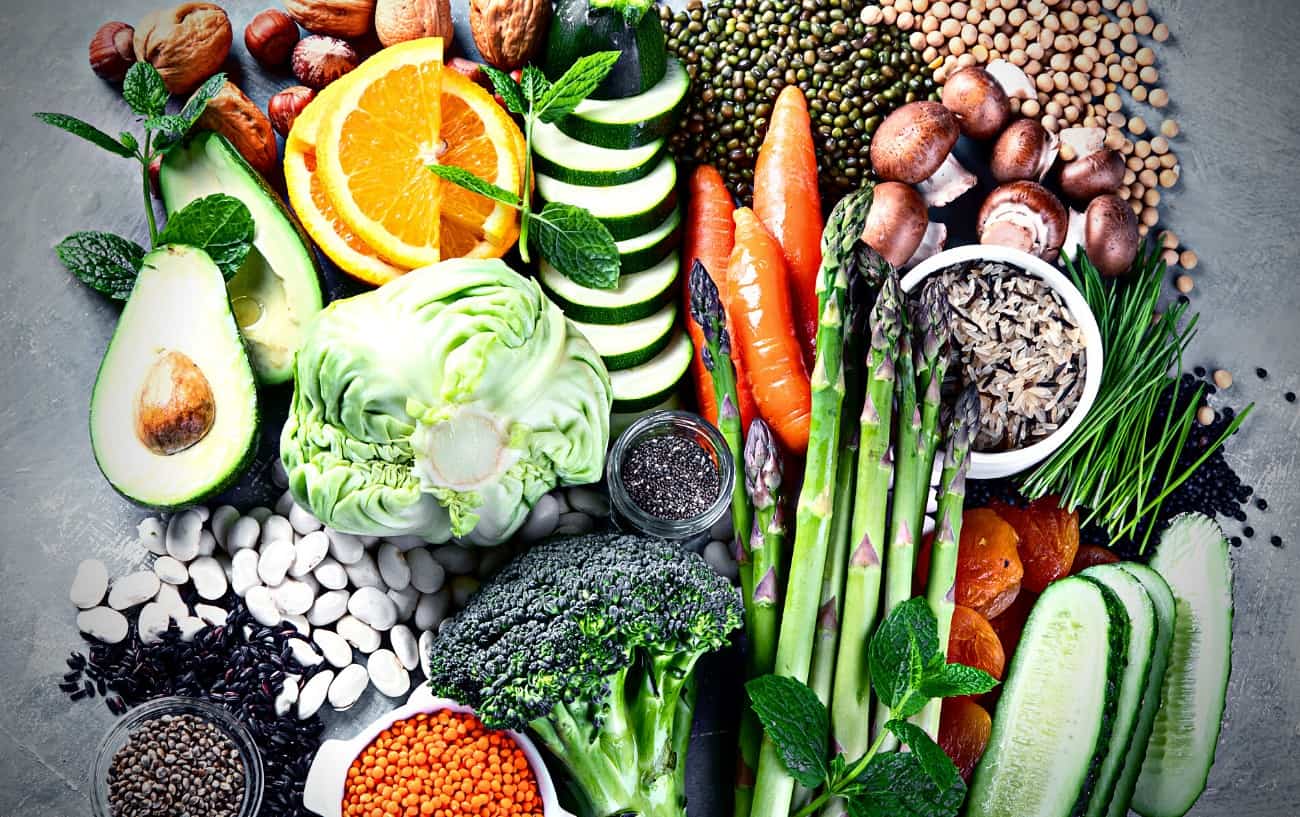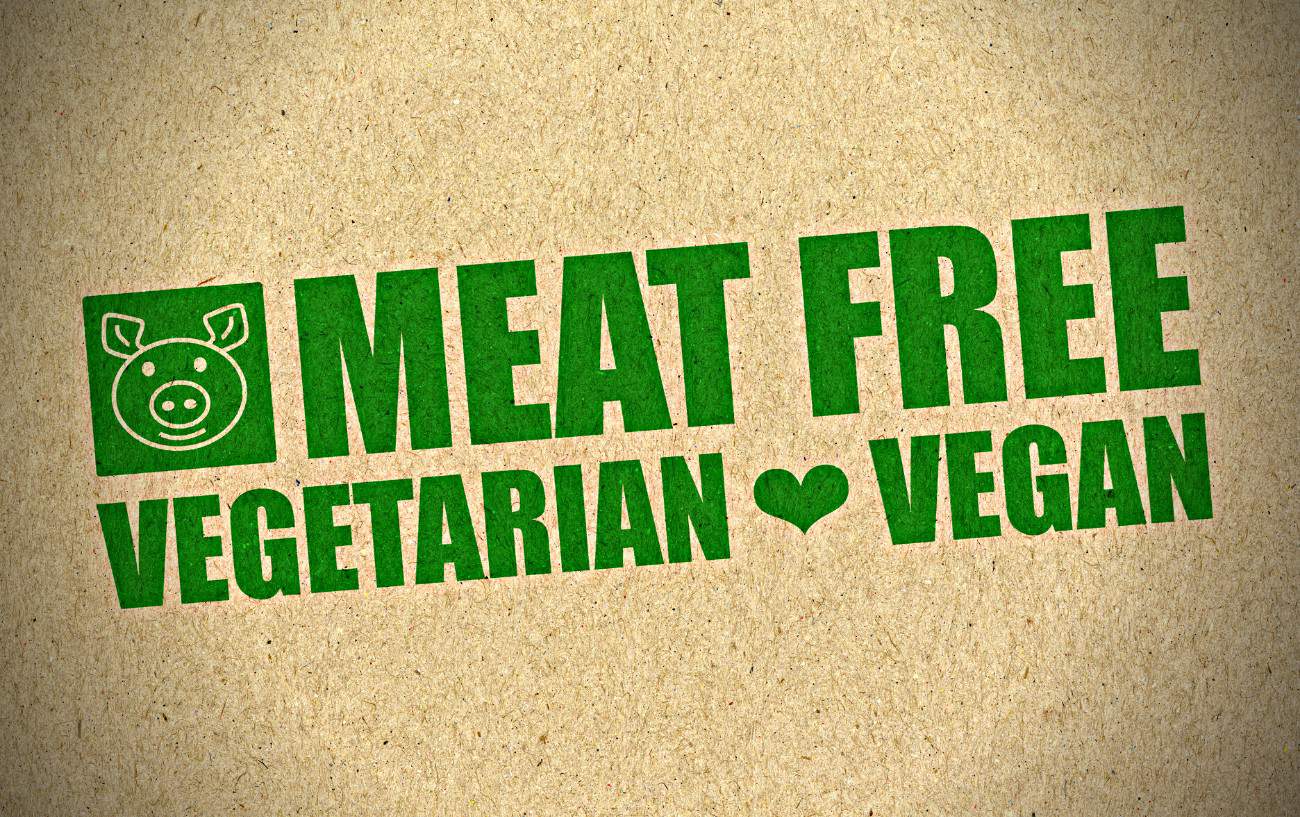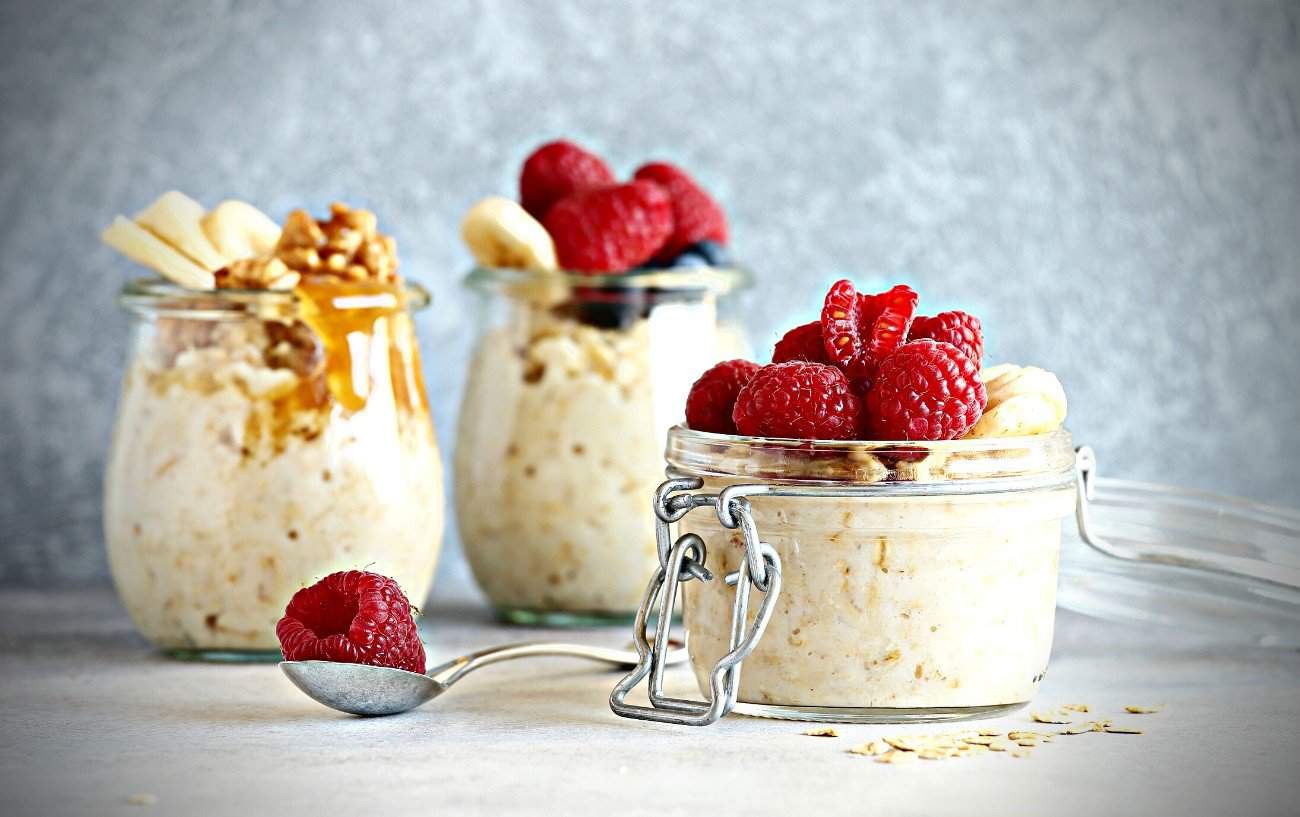There are few breakfast foods more iconic in the United States than a couple of scrambled or fried eggs. Millions of Americans—and people all over the world—choose to start their day by cracking an or two eggs and enjoying a hearty, protein-packed breakfast.
However, between the concern about consuming cholesterol and the increased awareness on the benefits of plant-based eating, more consumers have shifted away from regular chicken eggs. Instead, various types of vegan eggs have started cropping up and replacing classic cartons of chicken eggs in people’s refrigerators and breakfast platters.
But, are vegans eggs healthy? Although we tend to automatically associate the word “vegan” with “healthy,” just because a food is plant-based doesn’t necessarily mean it’s nutritious. In this guide, we will discuss whether vegan eggs are healthy and will compare vegan eggs vs. regular eggs to weigh the pros and cons of each.
We will look at:
- What Is a Vegan Egg?
- Why Do People Eat Vegan Eggs?
- Are Eggs Healthy?
- Are Vegan Eggs Healthy?
- Are Vegan Eggs Healthier Than Regular Eggs?
Let’s get started!

What Is a Vegan Egg?
Let’s face it: the term vegan egg is inherently an oxymoron, as an egg comes from an animal such as a chicken, turkey, duck, quail, or ostrich. That said, vegan eggs or plant-based eggs are egg substitutes made from ingredients derived from plants rather than animals.
Vegan eggs are products made by combining various plant-based ingredients in a formulation that is intended to mimic the look, taste, and/or binding abilities of poultry eggs. They can be made with anything from soy to mung beans, chia seeds to squash.
Most vegan eggs come as a liquid product, which can be poured into a pan and scrambled, turned into an omelet, quiche, used in baked goods, or baked. There are also premade vegan egg omelets and other plant-based egg foods that come refrigerated or frozen and ready to eat.
Examples of vegan eggs include JUST Egg, Crackd, Simply Eggless, Oggs, VeganEgg, Zero Egg, and WunderEggs.

Why Do People Eat Vegan Eggs?
Regular chicken eggs have been a classic staple in the diet for years, so why would people eat vegan eggs?
There are a few reasons that vegan eggs can be preferable over regular poultry eggs.
#1: Vegan Eggs Are Good for People Following Plant-Based Diets
First, for anyone on a plant-based diet, vegan eggs offer a plant-based alternative to regular eggs. Many of the traditional plant-based egg substitutes were only marginally effective at replacing regular eggs from a texture and consistency standpoint.
For example, people have used applesauce, flaxseeds, chia seeds, or aquafaba (bean milk) for years to replace chicken eggs in vegan baking applications.
However, each of these egg substitutes comes with various pros and cons and most of them miss the mark a bit on replicating the texture and consistency of the regular egg in the end product.

Moreover, none of them can be eaten in place of regular eggs as a convincing egg. In other words, no matter how you prepare applesauce or chia seeds, they aren’t going to come close to resembling a plate of scrambled eggs, poached eggs, or hard-boiled eggs.
Vegan eggs, on the other hand, can come pretty close to real eggs in terms of baking texture and consistency, and even egg taste and appearance.
Therefore, anyone on a plant-based diet who misses the experience of eating regular eggs can now have that craving better satisfied with vegan eggs.
#2: Vegan Eggs May Be Better for the Environment
There is also a sustainability or environmental benefit of eating vegan eggs. For example, JUST Egg, one of the leading vegan egg companies, reports that their plant-based JUST Egg uses 98 percent less water, emits 93 percent fewer carbon dioxide equivalents, and uses 86 percent less land than conventional poultry eggs.
Some consumers are also concerned about the animal rights and living conditions with conventional caged eggs, and choosing vegan eggs shows you do not endorse this industry.

#3: Vegan Eggs Do Not Contain Cholesterol
Finally, one of the primary reasons people choose vegan eggs over regular eggs is to reduce their cholesterol intake. Vegan eggs typically do not contain any cholesterol, whereas one whole chicken egg contains 186 mg of cholesterol.
Are Eggs Healthy?
Eggs are often called nature’s superfood. They are high in protein and contain numerous vitamins and minerals. But, exactly how much protein in one egg?
According to the USDA’s FoodData Central, one large, whole, hard-boiled chicken egg contains 78 calories, 6.3 grams of protein, 5.34 grams of fat, negligible carbohydrates and sugar, and small amounts of calcium, magnesium, phosphorus, potassium, sodium, zinc, iron, and selenium.
Eggs also contain a decent amount of folate, vitamin A, vitamin D, choline, lutein, and zeaxanthin.

However, one whole egg contains 186 mg of cholesterol. Although opinions and evidence are mixed, some people have concerns over consuming cholesterol, due to some findings that point to an association between cholesterol intake and the risk of cardiovascular disease.
A study published in the Journal of the American Medical Association investigated whether consuming dietary cholesterol from eggs is associated with an increased risk of cardiovascular disease and all-cause mortality.
Researchers pooled the data from 29,615 adults across six prospective cohort studies in the United States with a median follow-up of 17.5 years.
Results indicated that there was a dose-dependent response for cholesterol and disease risk. Each additional half an egg consumed per day was significantly associated with higher risk of cardiovascular disease and all-cause mortality.
Another large prospective study involving 521,120 participants who were followed over 16 years found that the cholesterol intake associated with whole egg consumption was associated with an increased risk of cardiovascular disease, cancer, and all-cause mortality.
Consumption of each additional 300 mg of dietary cholesterol per day was associated with 19% higher risk of all-cause mortality, 16% risk of cardiovascular disease, and a 24% higher risk of cancer mortality.
Researchers reported that cholesterol intake contributed to 63.2% of the increase in all-cause mortality, 62.3% of the increase in cardiovascular disease risk, and 49.6% of the risk of cancer mortality.

Are Vegan Eggs Healthy?
The nutrition facts of vegan eggs aren’t universal across the board, as each product is made from its own amalgamation of ingredients. However, in general, the basic nutritional profile between vegan eggs and regular eggs is relatively similar.
JUST Egg ingredients are designed to replicate not only the texture and taste of regular eggs but the nutrition as well.
For example, a serving of JUST Egg has 70 calories and 5 grams of fat, which is similar to a regular chicken egg. A real egg has slightly more protein, at 6g versus 5g in a serving of the vegan egg.
Vegan eggs have no cholesterol but they do contain more sodium. They sometimes have added nutrients like vitamin D and vitamin B12, which are especially impinge for vegans, but not all plant-based eggs have these nutrients.
Additionally, since vegan eggs are made from numerous ingredients, they are considered more of a processed food compared to a natural, regular egg. Plant-based eggs can contain filler ingredients to improve the taste and texture.

Are Vegan Eggs Healthier Than Regular Eggs?
In sum, vegan eggs typically provide a similar nutritional profile to regular eggs but may contain fewer vitamins and minerals and more salt. While vegan eggs contain zero cholesterol, they are processed more than regular eggs.
The debate about the association between dietary cholesterol and heart disease risk remains unresolved, so it’s worth speaking with your doctor and weighing your own risk when trying to decide what’s best for you.
Have you tried vegan eggs? Do you prefer them over regular eggs? Let us know your thoughts!
If you are looking to try a plant-based diet out, take a look at our Fuel Your Running on a Plant Based Diet guide.













